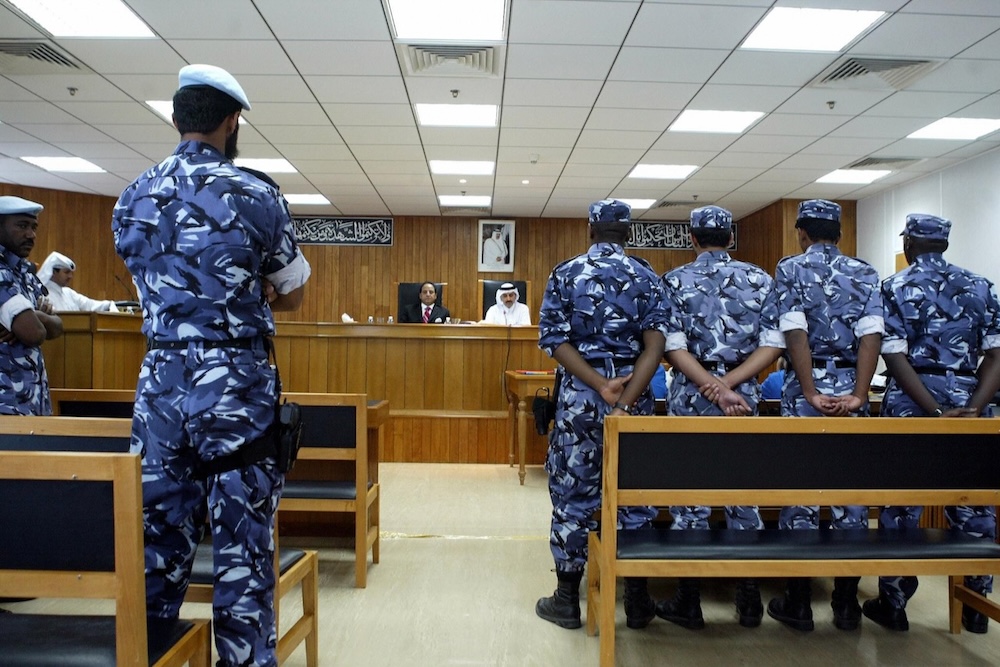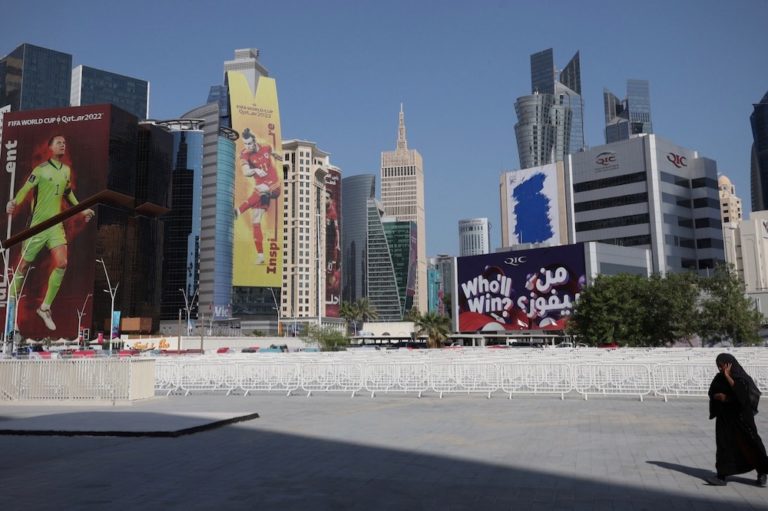The sentencing of internet activists signals a deeper crackdown on online dissent and digital freedoms in Qatar.
This statement was originally published on gc4hr.org on 8 April 2025.
Two Internet activists have been sentenced to prison in Qatar, according to reports received by the Gulf Centre for Human Rights (GCHR). Their sentences come at a time when a security agreement was made between Qatar and Saudi Arabia.
Internet activist Umm Nasser
On 20 March 2025, the Criminal Court sentenced internet activist Umm Nasser to three years in prison and a fine of 50,000 Qatari Riyals.
She was convicted of the charges of allegedly spreading false rumours, managing a social media account to spread such rumours, and disrespecting the Qatari judiciary. Multiple reports received by the GCHR indicated that the defence team failed to fulfil its duties due to pressure from the authorities. The verdict was appealed.
Reliable local sources have confirmed that she is currently being held in the Doha Capital Security Department prison, where she is suffering from ill-treatment and a lack of medical care. She was also physically assaulted while in prison.
On 3 January 2025, she posted a video on her TikTok account in which she spoke about corruption in the Public Prosecution Office and questioned why they imprison “free people”, and why human rights are not being respected. She emphasised that she would not remain silent and would demand her rights. Umm Nasser asked for solidarity with her if she did not respond to calls and was arrested by the authorities.
Internet activist Ahmed Al-Kuwari
Internet activist Ahmed Abdullah Al-Saad Al-Kuwari announced a hunger strike in his cell located in the seventh sector of the Central Prison, starting on 28 March 2025, in protest against the arbitrary prison sentence issued against him. He called on the international community and human rights organisations to stand in solidarity with him. He was transferred to hospital due to the deterioration of his health condition as a result of his hunger strike.
On 19 January 2024, he was arrested by the Saudi State Security Presidency without any charges being filed. On 7 April 2024, he was deported across the Saudi-Qatari border in coordination with Qatar’s notorious State Security Apparatus, to whom the Saudi authorities handed over his four mobile phones, several memory cards containing his files, and personal documents.
On 25 July 2024, the Court of First Instance sentenced the internet activist to five years in prison, blocked his online account, and confiscated his phones. On 10 October 2024, the Court of Appeal decided to increase the initial sentence against him, to 13 years in prison, according to its ruling, a copy of which was obtained by the GCHR.
He was convicted of the following charges, according to the court’s ruling: From 2022 to 2024, he allegedly publicly challenged the Emir’s exercise of his rights and powers and defamed him; published and republished rumours; publicly disrespected judges; created and operated a website using an information technology device to spread false news; violated social principles and values through his use of the internet via his TikTok and YouTube accounts; and incited hatred and sowed discord among members of society.
Articles from three laws were used to convict him: Articles (1/134, 136 bis, and 201) of the Penal Code and its amendments, Articles (6, 8) of the Anti-Cybercrime Law, and Article (47/i) of the Press and Publications Law No. (8) of 1979.
It is worth noting that the aforementioned ruling named prominent Qatari political activist Abdullah Al-Maliki as a fugitive from the country, even though he legally left the country in 2016.
Security Agreement with Saudi Arabia
On 4 February 2025, the Saudi Council of Ministers approved a security agreement to exchange personal data and information of citizens between the two countries, which puts their digital privacy, including that of human rights and internet activists, at grave risk.
Recommendations
GCHR calls on the competent authorities to immediately and unconditionally release both internet activists, Umm Nasser and Ahmed Abdullah Al-Saad Al-Kuwari, and to drop all charges against both of them.
The Qatari government must respect the fundamental rights of citizens and residents, especially since the Qatari government signed and ratified the International Covenant on Civil and Political Rights and the International Covenant on Economic, Social, and Cultural Rights in 2018. These rights include freedom of expression online and offline, freedom of peaceful assembly, freedom to form associations and trade unions independent of the government, and freedom of movement within and outside the country.



